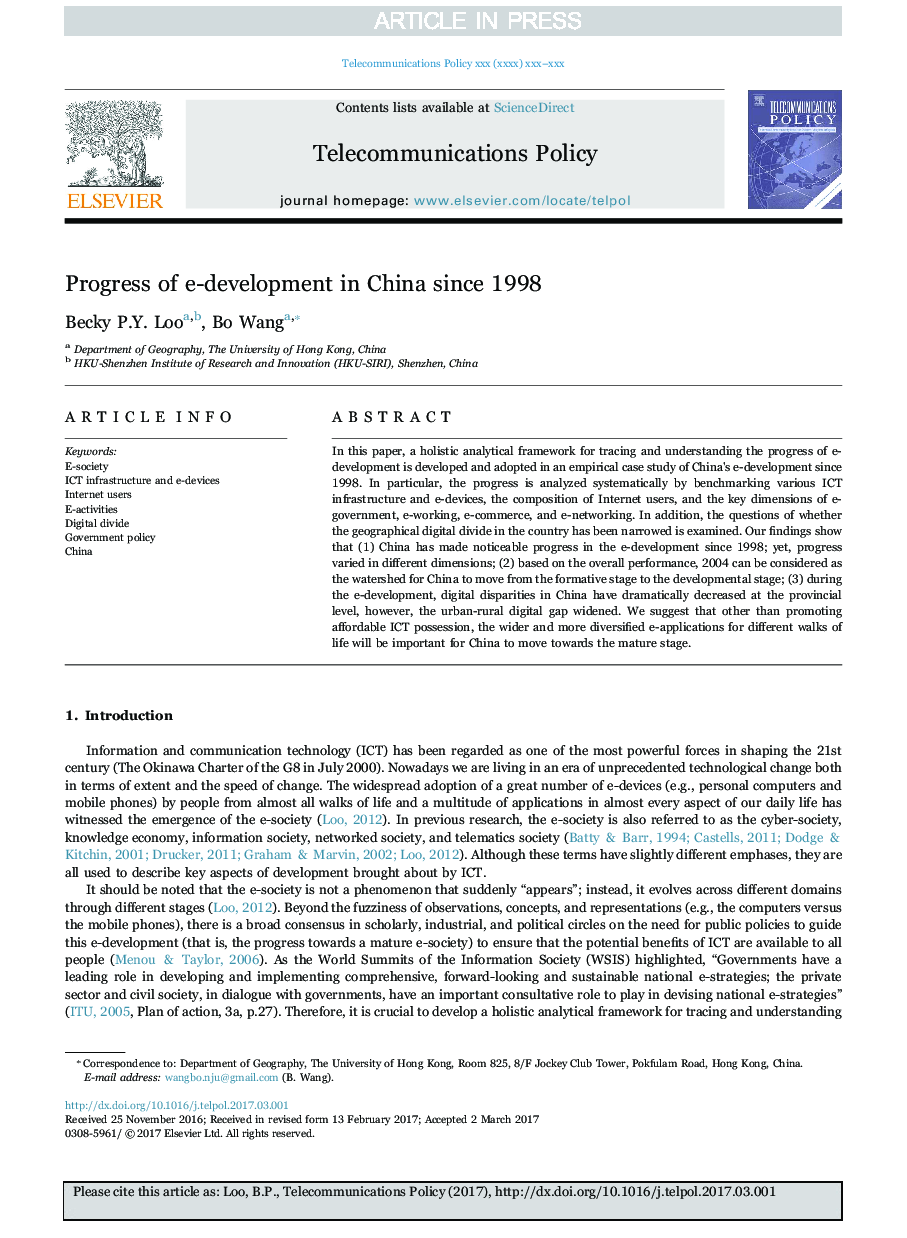| Article ID | Journal | Published Year | Pages | File Type |
|---|---|---|---|---|
| 6950344 | Telecommunications Policy | 2017 | 12 Pages |
Abstract
In this paper, a holistic analytical framework for tracing and understanding the progress of e-development is developed and adopted in an empirical case study of China's e-development since 1998. In particular, the progress is analyzed systematically by benchmarking various ICT infrastructure and e-devices, the composition of Internet users, and the key dimensions of e-government, e-working, e-commerce, and e-networking. In addition, the questions of whether the geographical digital divide in the country has been narrowed is examined. Our findings show that (1) China has made noticeable progress in the e-development since 1998; yet, progress varied in different dimensions; (2) based on the overall performance, 2004 can be considered as the watershed for China to move from the formative stage to the developmental stage; (3) during the e-development, digital disparities in China have dramatically decreased at the provincial level, however, the urban-rural digital gap widened. We suggest that other than promoting affordable ICT possession, the wider and more diversified e-applications for different walks of life will be important for China to move towards the mature stage.
Related Topics
Physical Sciences and Engineering
Computer Science
Information Systems
Authors
Becky P.Y. Loo, Bo Wang,
